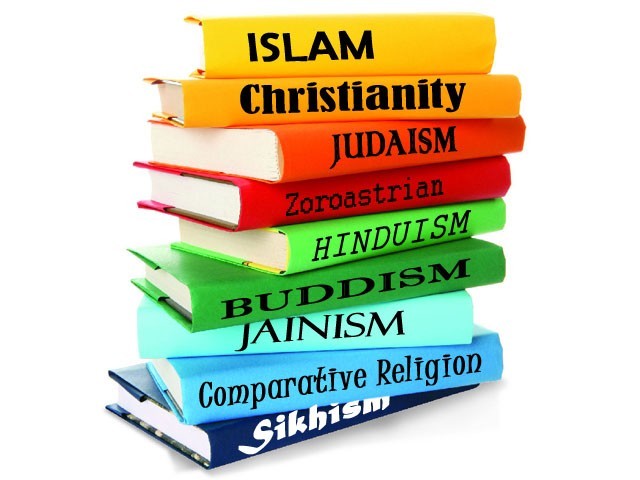
After attending nearly a half-a-day’s worth of sessions on the soon-to-be-launched Habib University, Sheema Kermani was disappointed to learn that the university is not offering courses in music and dance.
The dancer and women’s rights activist fired one question after another at the very end of the session on ‘Humanities and Social Sciences for the Postcolonial World’, which was part of the First Annual Habib University Conference on Postcolonial Higher Education on Saturday.

“Which language will you be teaching your students, given a majority of students seeking higher education have little to no understanding of the English language?” “Why are we talking about a year-long course on Islamic traditions? Don’t you think it is time we move away from merging religion with humanities?”
With a guilty smile on his face, Dr Nauman Naqvi, the acting dean of Habib University’s School of Arts, Humanities and Social Sciences, admitted he need some time to recover from the onslaught. As far as humanities are concerned, Dr Naqvi said, “The heart of humanities lies in literature and philosophy.” Like other Western institutions, Habib University will also teach Aristotle and Plato but its students will also read the Quran, he explained.
“[At the start of the day] we were very excited that this would be a liberal arts university with a liberal approach,” Kermani said, stressing on the need to remove religion from humanities to make society free of the extremism that permeates today.

Dr Naqvi disagreed. “We cannot completely disown or disinherit Islamic traditions,” he said, adding that faith and knowledge do not exist in some binary forms. “Large domains of human thought cannot be dismissed simply by saying it’s irrational,” he added, making a case for the study of Islamic history and traditions, which will be a year-long course at Habib University.
Earlier in the session, Dr Ravindran Sriramachandran, an assistant professor of international studies at American University of Sharjah, made a case for reading vernacular classics. “To read the [vernacular] classics is better than to not read the classics,” he said. For Dr Ravi, a classical does not necessarily teach us something new. “It says something we already knew but now acknowledge in a whole new way.”
Languages are independent, he pointed out, adding that they provide man a particular association with the world itself. “Pupils in the olden days did not learn Latin or Greek merely to speak it,” he said.
Published in The Express Tribune, October 20th, 2013.
COMMENTS (15)
Comments are moderated and generally will be posted if they are on-topic and not abusive.
For more information, please see our Comments FAQ

1732071267-0/lana-(2)1732071267-0-165x106.webp)
1727242355-0/Diddy-(1)1727242355-0-165x106.webp)

1732063440-0/elon-(3)1732063440-0-165x106.webp)
1732080054-1/Copy-of-Untitled-(48)1732080054-1-270x192.webp)











It is mind boggling to see that my reply could not pass ET's censors. This means the situation is even worse than I thought. One seems to have to live with this unscientific attitude.
@Padhaee Baz: I posted my answer to you several hours ago, apologies for the inconvenience, but it has not been posted yet.
Universities can teach much better and humane religion than madrassas.However,it might help that people who study religion have some basic information about other religions.A course in comparative religion is a good idea.
@Toba Alu
Ok, but what if the topic that I am studying starts making sense to me, even though it conflicts with my belief! For example, let's say I 'believe' that Earth is flat. Then I start studying Physics and it says Earth is round like a ball, AND it gives evidence to back up its claim.... evidence that I find impossible to deny. Now the object of my study clearly conflicts with my belief!
What do you recommend a student should do when faced with such dilemma? Should he reject the belief, or should he reject what he studied?
Or should he keep believing that Earth is flat, yet look for jobs in fields where the only way to success is through practicing Earth-is-round-like-a-ball principle?
Utter nonsense.
@Naeem Can you please name 3 prominent scholars who are in agreement about what "true Islamic philosophy" really is?
Yes Habib university for MOLVIS to enlighten PEACEFUL ISLAM.
If you wait this long before posting my comments, you made sure nobody will read it anymore. Thanks.
Sheema is right - it's high time we remove these studies. Pakistan would be a better place if it thought dance instead of dunce knowledge!
I don't get it. At a real university you study. You don't have to 'believe' in the object of your study. You can study anything, whether physics, one religion, or many religions, or UFO's. The difference is that a Mullah is preacher not a teacher. The question is whether one is allowed to ask the teacher of religions any question without being accused of blasphemy or anything like it. I quess this is one step too far in Pakistan. If that is true there cannot be a true university in Pakistan at all. Questioning is at the hart of any study!!!
" Don’t you think it is time we move away from merging religion with humanities?”" Seriously? That is exactly what we have to do. Merge them. I can't believe how a person with such an important position can say this. AT this point in history this is what we need.
As the great Edhi said, when stomach is full there is No religion. Besides it best to first have knowledge then religion as knowledge brings you awareness and power whilst religion is a source of comfort in times of despair. Without knowledge one cannot analyze religion properly either. A free thinking mind is very important more so now than ever before free from the constraints of religion as nobody in this world is perfect. Also generally the more religious a person is, the more racist and insular they are regardless of the faith they follow as they walk with a sense of piety and righteousness which is not right at all.
Teaching religion is not a problem as long as it is not taught with an agenda but a non biased approach. Same goes for Islam. At the same time its important to remember where we came from, the culture the history of our ancestors and what we can learn from it, and from that I mean ancient Indus Valley, Vedic and Persian Civilizations, we would be forgotten by history ourselves.